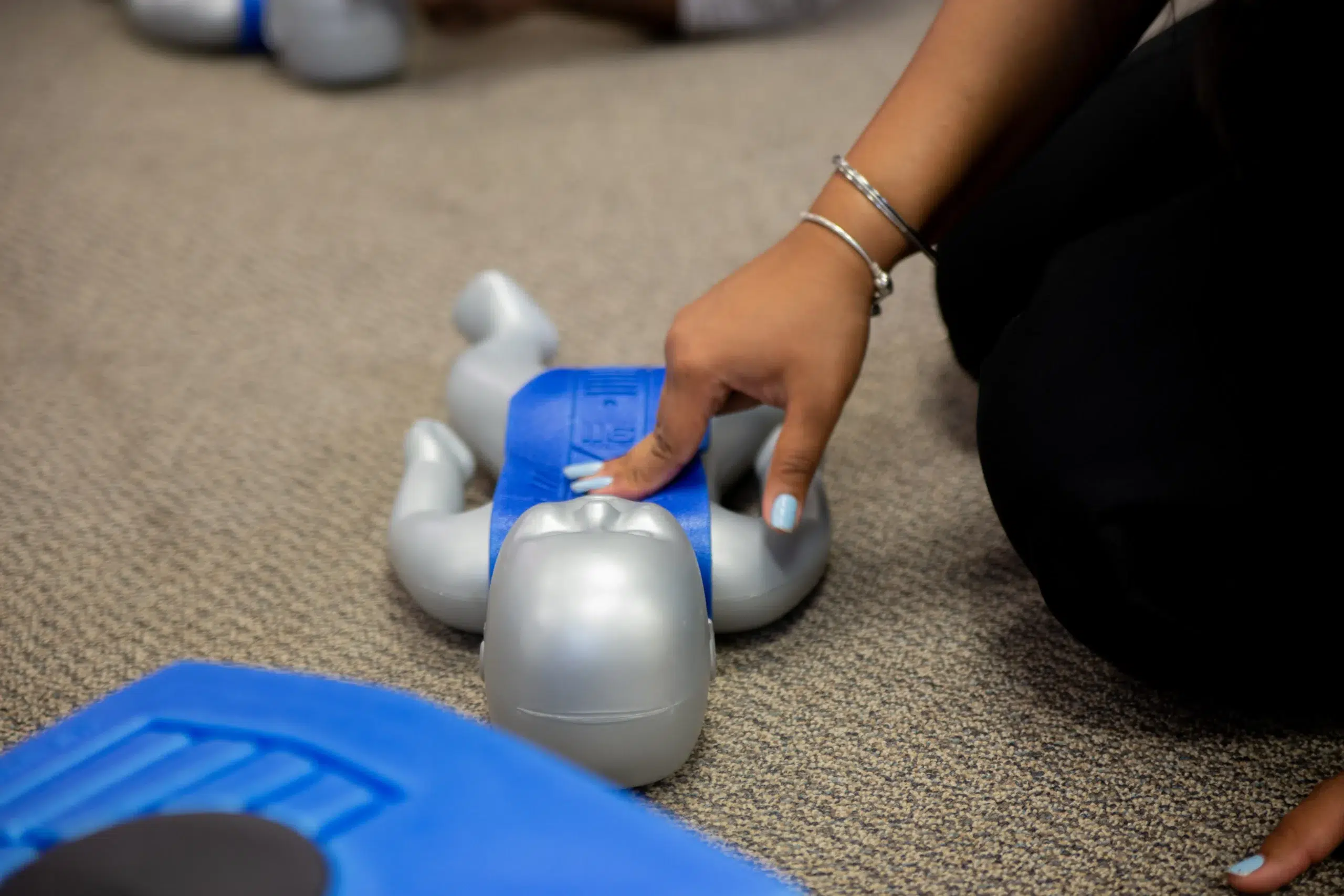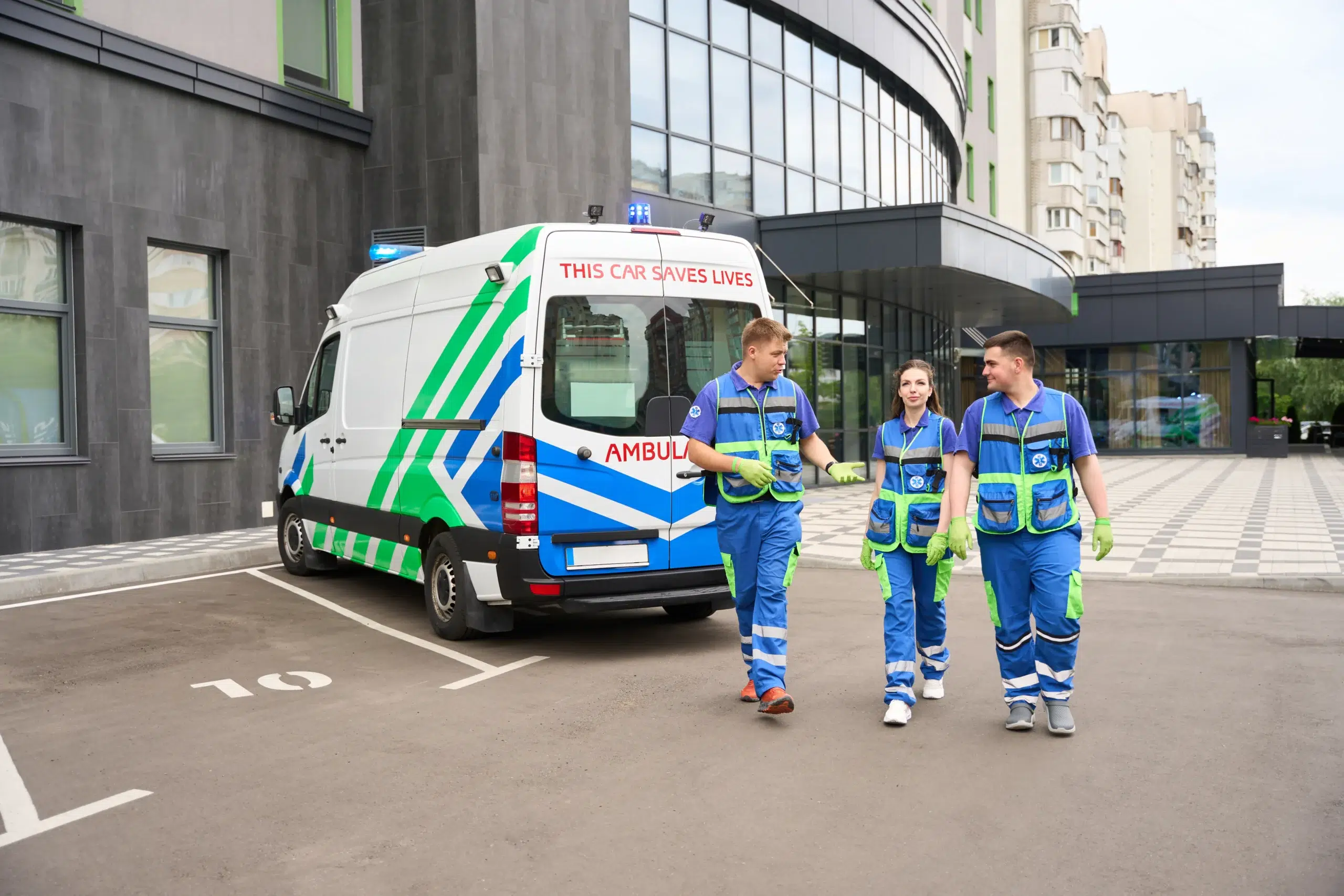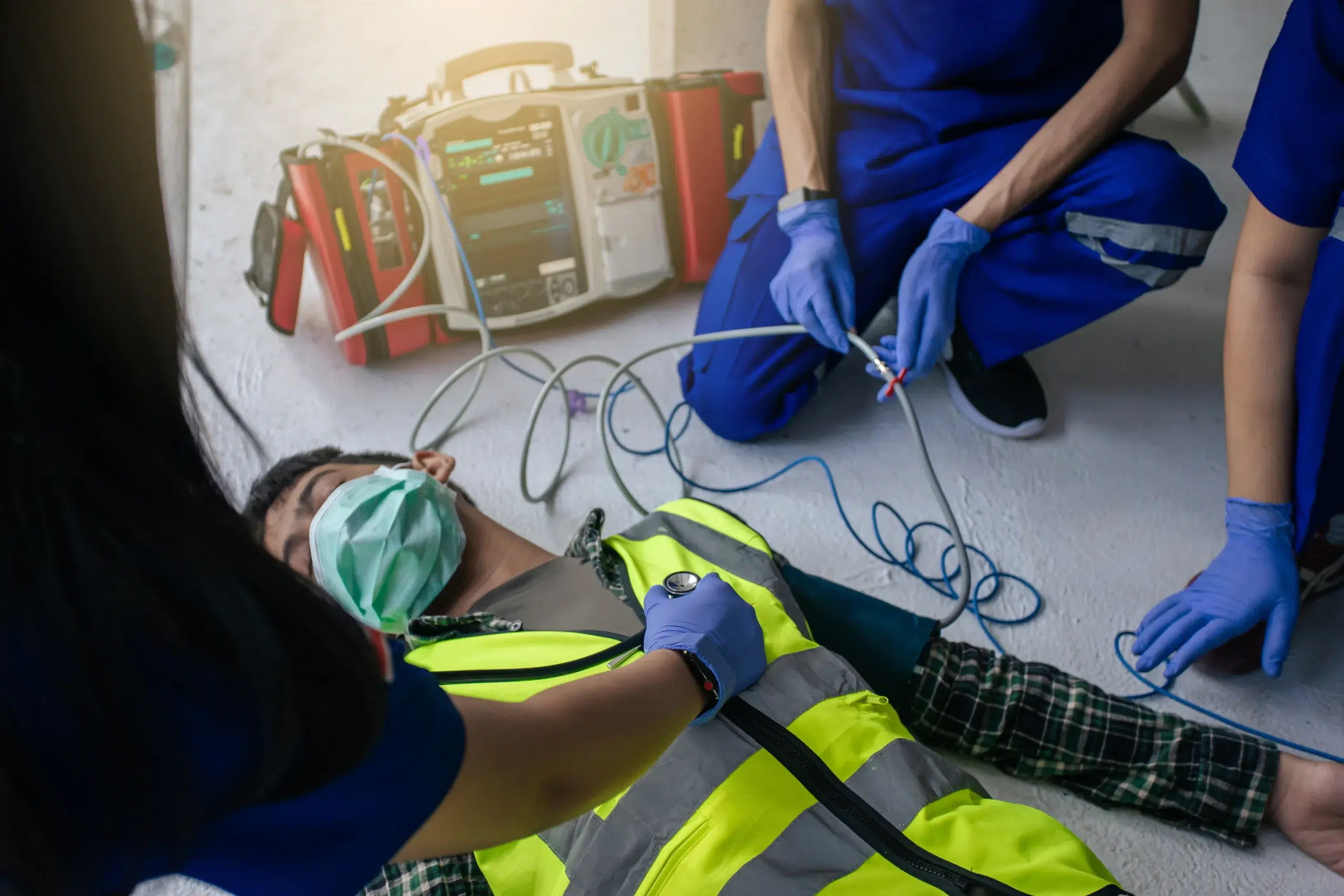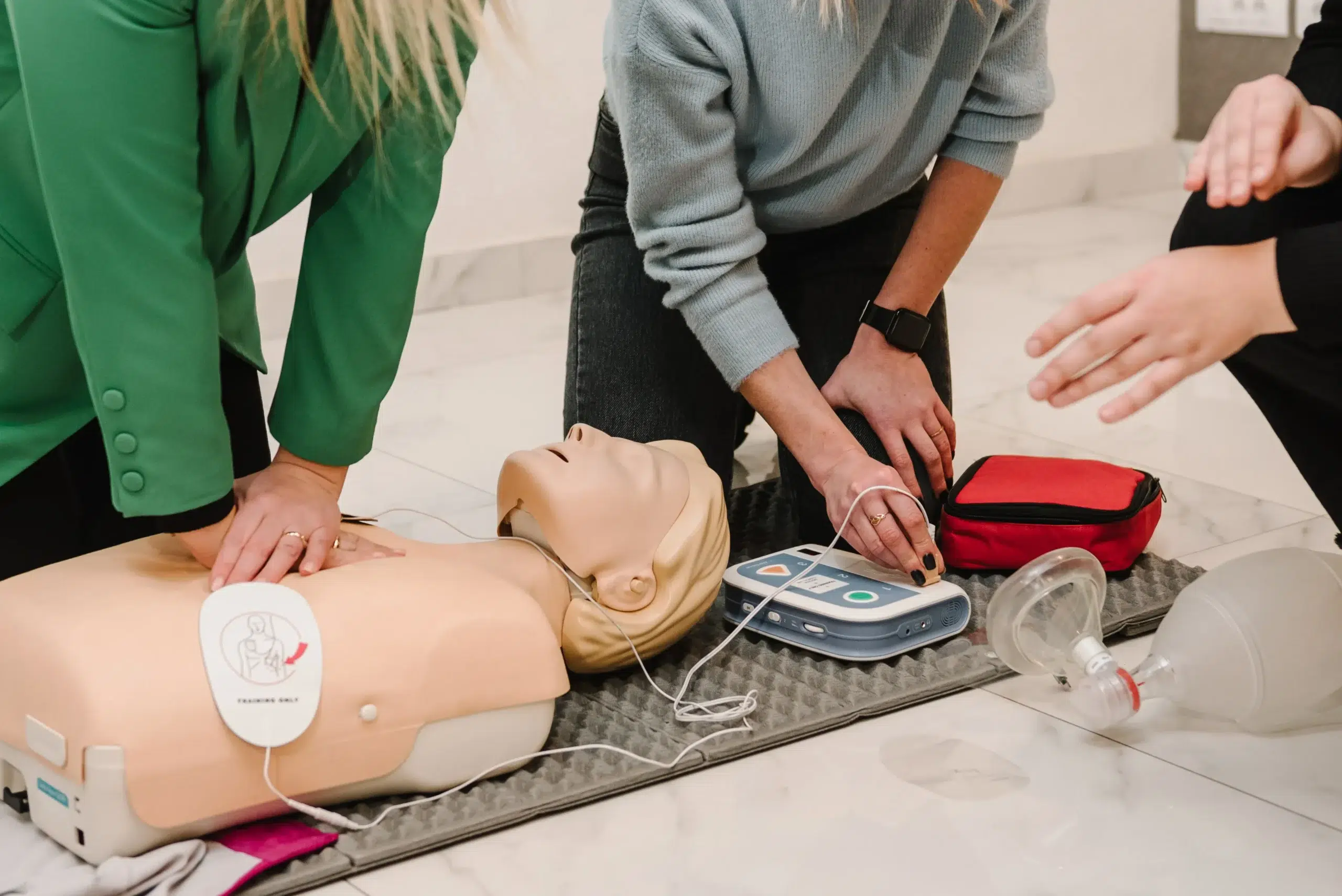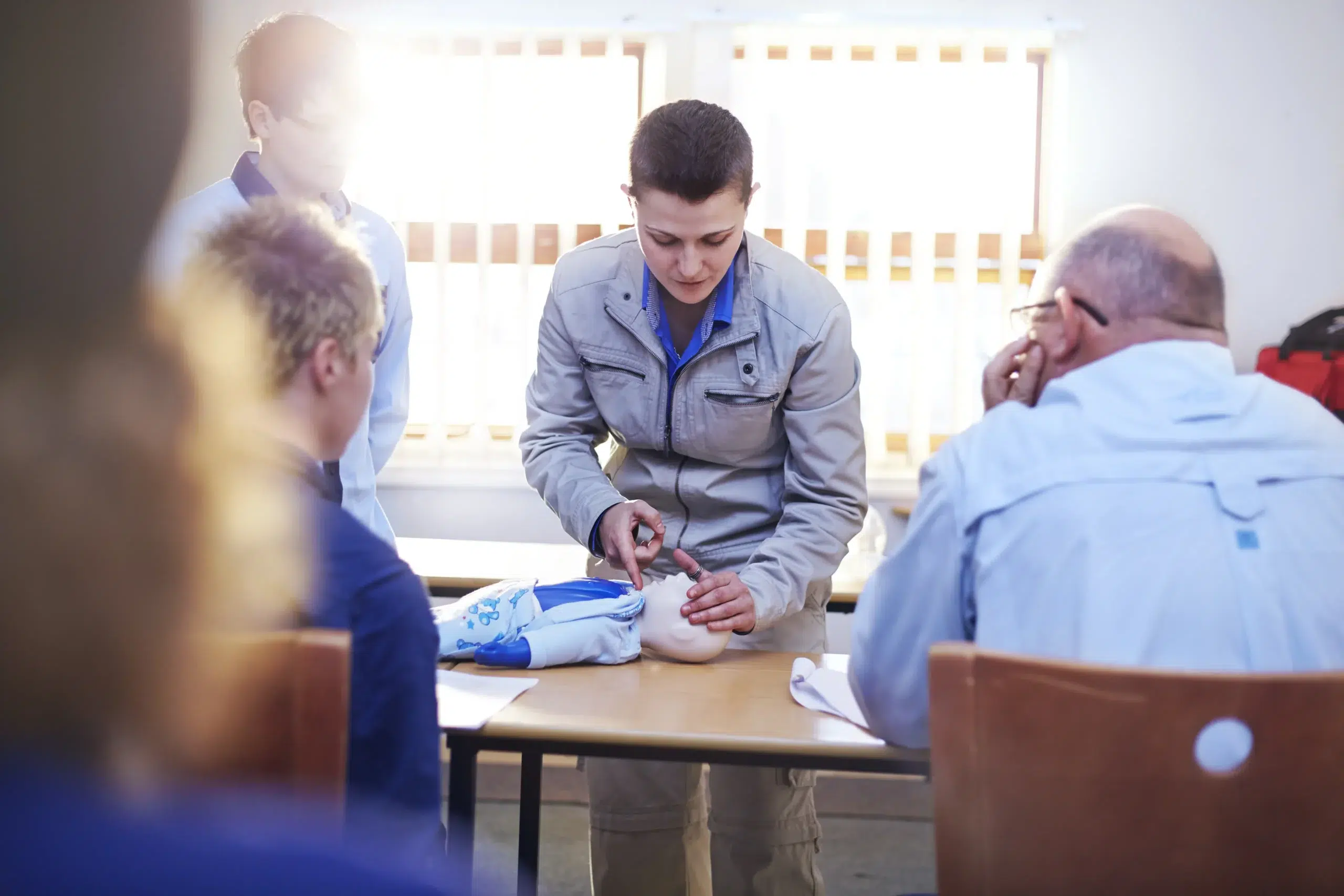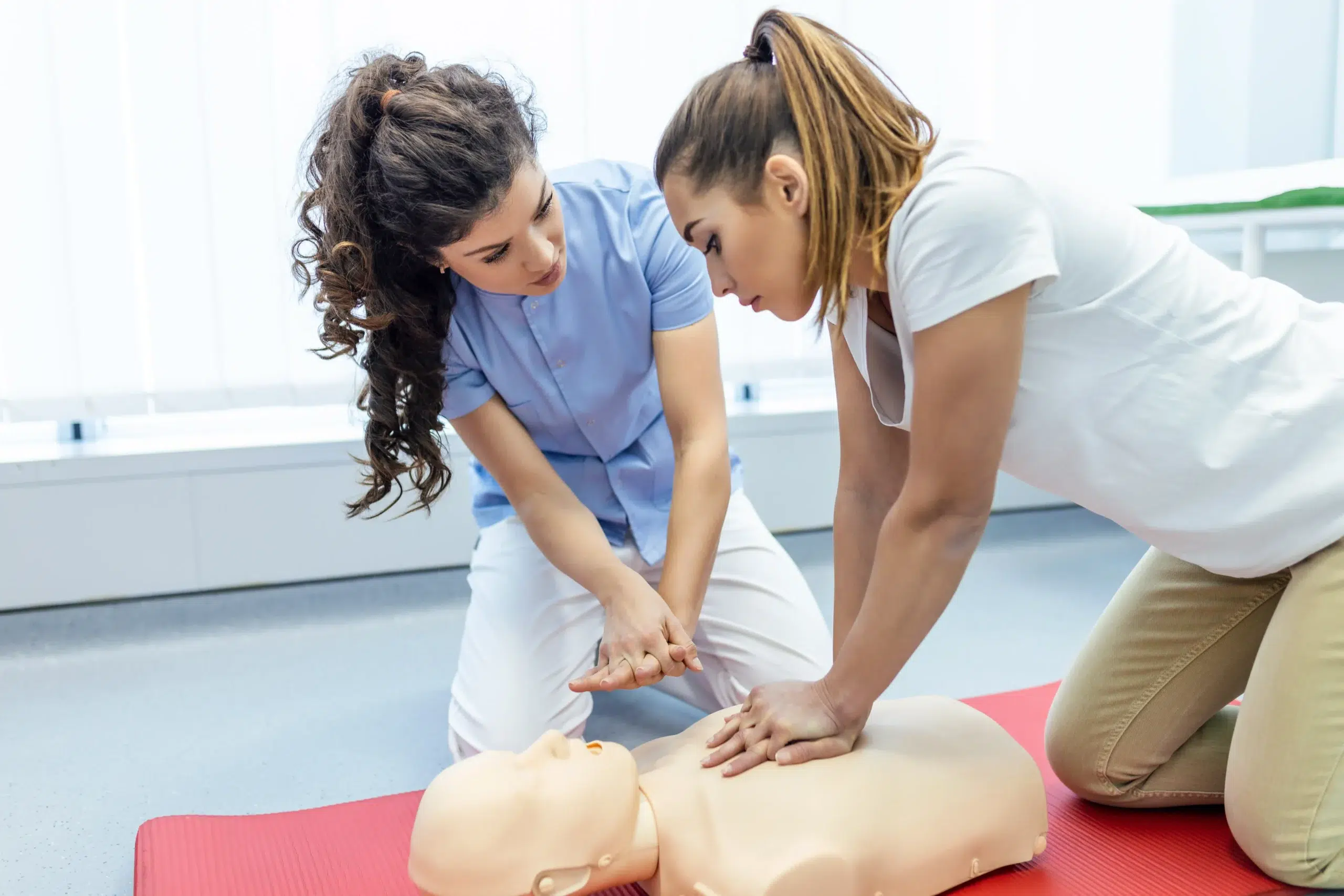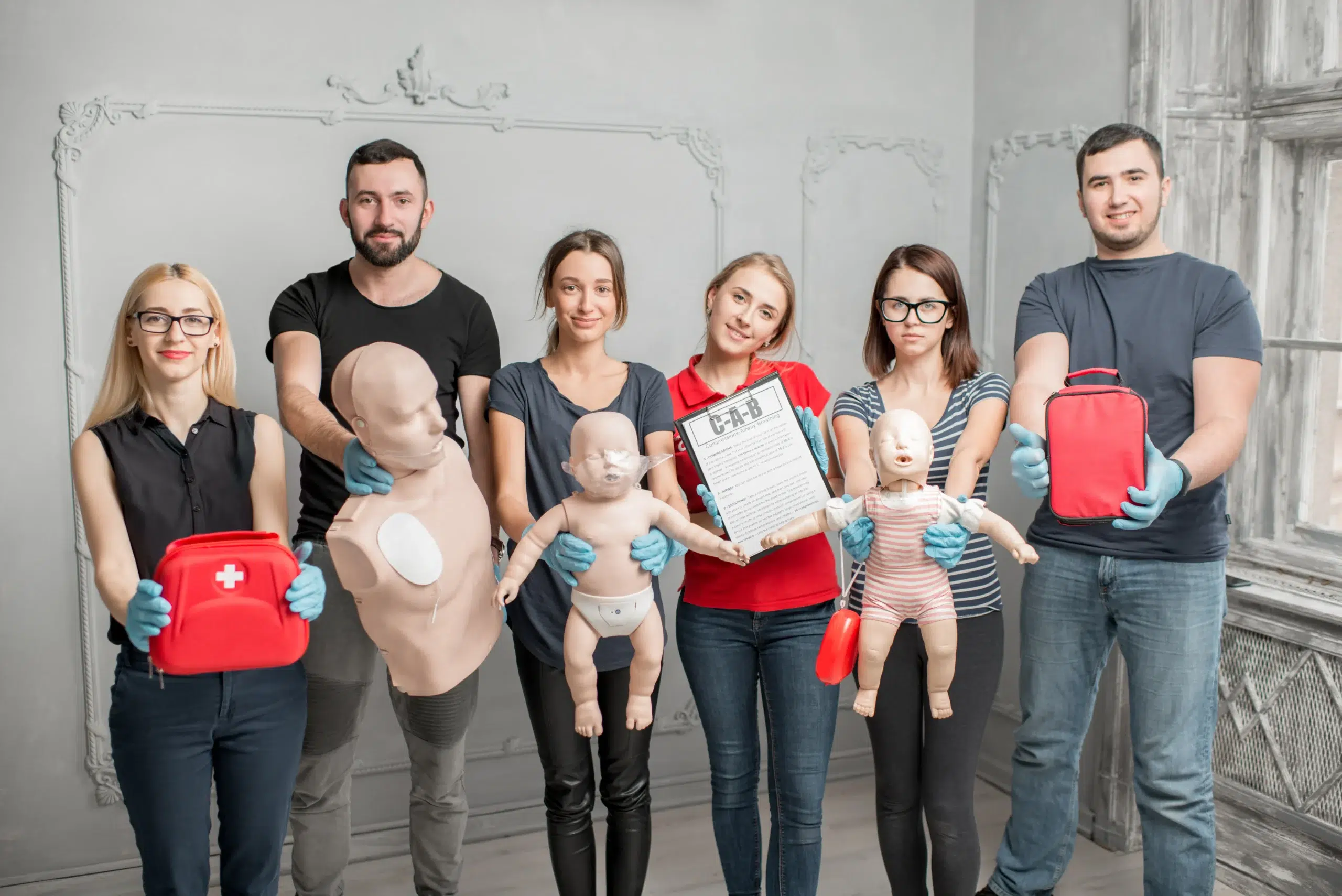In the fast-paced world of healthcare, being prepared for any emergency is crucial. For healthcare providers in Concord, ACLS courses offer specialized training to handle complex cardiovascular situations. This post will delve into the specifics of ACLS training, explaining what it is, why it matters, and how it benefits both healthcare professionals and the community. We’ll explore the key skills taught in these courses, discuss the differences between initial and renewal certifications, and provide insights into choosing the right ACLS course in Concord.
Key Takeaways
- ACLS equips you with advanced life-saving skills: It builds upon basic CPR, providing the expertise to manage complex cardiac emergencies and improve patient outcomes. Choose a course that offers hands-on training and simulations.
- Find an ACLS course that fits your lifestyle: Explore various learning formats, including in-person, online, and blended learning, to find the best option for your schedule and learning preferences.
- ACLS training strengthens the healthcare system: It empowers healthcare providers, improves teamwork and communication during emergencies, and ultimately leads to better patient care within the community. Consider group discounts for your team.
What are ACLS Courses?
ACLS stands for Advanced Cardiovascular Life Support. These courses are designed for healthcare providers like doctors, nurses, and paramedics who lead or participate in resuscitation efforts. Think of situations like cardiac arrest or other serious heart and lung emergencies. These courses build on the skills you need to effectively treat adult patients in these critical situations, focusing on interventions that can truly make a difference. Pleasant Hill CPR Classes offers a range of ACLS courses to help you gain these vital skills.
ACLS courses cover essential skills, including refining your basic life support skills (CPR) and learning to recognize and manage cardiac arrest. You’ll also understand how to treat chest pain and acute coronary syndromes and gain expertise in handling strokes. The training dives into advanced tools and techniques, such as interpreting electrocardiograms (ECGs), administering medications, and managing airways. These advanced skills differentiate ACLS from Basic Life Support (BLS) training, which focuses on foundational CPR and other basic life-saving procedures. Check out our BLS course offerings to learn more.
ACLS training builds upon BLS but is more advanced and usually requires some medical background. Many ACLS courses review core BLS material to ensure everyone is prepared for the complexities of advanced life support. If you’re a healthcare professional looking to expand your skillset and be ready for critical situations, consider our ACLS courses to see how they can benefit your career. We also offer a low price guarantee, so you can feel confident you’re getting the best value for your training. Contact us today to learn more.
Why ACLS Training Matters in Concord
ACLS (Advanced Cardiac Life Support) training is critical for healthcare providers in Concord. It equips them with the skills to respond effectively to life-threatening cardiac emergencies. The American Heart Association emphasizes that ACLS certification is designed for those who direct or participate in resuscitation, both in and out of the hospital setting. This training not only strengthens individual skills but also promotes a collaborative approach among healthcare professionals, first responders, and emergency medical services within the community. Investing in ACLS education demonstrates a commitment to excellent emergency medical care and patient safety.
In Concord, a timely and effective response to cardiac events can dramatically impact patient outcomes. A well-trained healthcare workforce is essential. The ACLS course covers essential skills such as basic life support (CPR), recognizing and managing cardiac arrest, treating chest pain and acute coronary syndromes, and handling strokes—all vital components in saving lives. Furthermore, ACLS training prepares healthcare providers to act quickly and efficiently during emergencies, ensuring they can confidently manage complex situations.
By prioritizing ACLS training, Concord strengthens its overall healthcare response, leading to better patient care and improved survival rates in critical situations. For healthcare providers looking to enhance their skills and contribute to a stronger emergency response system, pursuing ACLS certification is a significant step.
Top ACLS Course Providers in Concord
Finding the right ACLS course is crucial for healthcare professionals. Here are a few reputable training centers in the Concord area:
Pleasant Hill CPR Classes
Pleasant Hill CPR Classes offers American Heart Association (AHA) ACLS certification designed to improve cardiac care and encourage teamwork among healthcare providers, first responders, and emergency medical services. Their courses cater to those wanting to refine their advanced cardiovascular life support skills. They also offer convenient RQI programs, a streamlined certification process for busy medical professionals. Be sure to check their low price guarantee.
Safety Training Seminars
Safety Training Seminars provides comprehensive training, including AHA CPR, BLS, ACLS, and PALS classes in Pleasant Hill. They emphasize the RQI (Resuscitation Quality Improvement) program as an efficient way for medical professionals to obtain their AHA certification cards. This program is known for its effectiveness in preparing participants for real-world emergencies. Contact them to learn more.
CPR Training Center
The CPR Training Center of Concord focuses on ACLS courses, along with CPR and PALS training. They specialize in AHA-certified CPR training and renewals for people in the Bay Area, including Concord, Pleasant Hill, and Walnut Creek. Their commitment to high-quality training prepares participants to handle emergencies effectively.
Course Structure and Duration: What to Expect
Understanding the structure and time commitment of an Advanced Cardiovascular Life Support (ACLS) course helps you prepare and choose the best learning format. Let’s explore the different options: in-person, online, and blended learning.
In-Person Training
Traditional in-person ACLS courses offer a comprehensive, immersive learning experience. Designed for healthcare providers involved in patient resuscitation, these courses combine lectures, demonstrations, and hands-on practice. Expect an initial ACLS course to last approximately 10 hours, while renewals typically require around six. This format allows direct interaction with instructors and real-time feedback, solidifying your skills.
Online Options
If a busy schedule makes attending in-person classes challenging, legitimate online ACLS courses provide flexibility. Seek out reputable providers using interactive elements like simulations and multimedia for a more engaging experience. While the theoretical components are online, most certifications require an in-person skills assessment to confirm competency.
Blended Learning
Blended learning combines online convenience with in-person instruction. Programs like the American Heart Association’s RQI program offer a streamlined certification path for medical professionals. Work through the cognitive material online at your own pace, then schedule a shorter in-person session to demonstrate your skills and complete the certification process. This flexible approach ensures you receive the practical training necessary for effective patient care.
Key Skills and Knowledge in ACLS Courses
ACLS courses equip healthcare providers with the advanced, life-saving skills necessary to respond effectively to cardiopulmonary emergencies. This training goes beyond basic CPR and covers a range of critical interventions. Let’s explore the core skills and knowledge gained in an ACLS course.
Basic Life Support Techniques
While advanced, ACLS certification builds upon the foundation of BLS. You’ll refine your skills in CPR, ensuring chest compressions and rescue breaths are delivered effectively. These BLS skills are crucial for maintaining oxygenation and circulation during a cardiac arrest. A solid understanding of using an automated external defibrillator (AED) is also reinforced, as prompt defibrillation can be life-saving.
Cardiac Arrest Management
ACLS training emphasizes the systematic approach to managing cardiac arrest. You’ll learn to quickly assess the patient, identify the underlying rhythm disturbance using electrocardiogram (ECG) interpretation, and implement the appropriate treatment algorithms. This includes administering medications, performing advanced airway management, and making critical decisions under pressure. RQI programs offer an efficient certification process for healthcare professionals seeking these skills.
Advanced Airway Management
Effective airway management is paramount in a cardiac arrest or other respiratory emergencies. ACLS courses cover various techniques for securing and maintaining a patent airway, including endotracheal intubation and the use of supraglottic airway devices. You’ll gain proficiency in these procedures, ensuring adequate ventilation and oxygen delivery.
Medication Administration
Unlike BLS, ACLS certification involves administering a range of medications used in cardiac emergencies. You’ll learn about the indications, dosages, and potential side effects of these drugs, including antiarrhythmics, vasopressors, and other critical medications. Understanding how these medications work and when to administer them is essential for effective patient care. For more information about our low price guarantee on ACLS courses, visit our website.
Team Dynamics and Communication
Responding to a cardiac arrest requires a coordinated team effort. ACLS courses emphasize the importance of clear communication, effective teamwork, and role assignment during resuscitation. You’ll practice working as part of a team, developing the skills to communicate concisely and efficiently in high-stress situations. This collaborative approach ensures that all team members are working together toward a common goal: saving the patient’s life. Contact us to learn more about our ACLS course offerings.
Initial vs. Renewal ACLS Courses: Key Differences
Ready to pursue ACLS training or recertification? Great! Whether you’re a first-timer or looking to renew, understanding the differences between initial and renewal ACLS courses will help you choose the right path. Both courses prepare healthcare providers for advanced cardiac life support situations, but they differ in length, cost, and focus.
The initial ACLS course provides a comprehensive introduction to advanced cardiac life support. Expect a longer course, around 10 hours, covering everything from basic life support (CPR) to complex scenarios like acute coronary syndromes and stroke management. This in-depth approach ensures a solid foundation. CPR Training Center offers a good overview of what an initial ACLS course covers. These courses typically cost around $250 (manual not included), reflecting the broader scope.
Renewal courses are designed for providers with a current ACLS certification. These courses are shorter, approximately six hours, and focus on reinforcing existing knowledge and updating skills. The emphasis is on refreshing core concepts, reviewing updates to treatment guidelines, and ensuring you maintain proficiency. The cost is generally lower, around $190 (manual not included), as it builds upon prior training. Pleasant Hill CPR Classes offers a low price guarantee.
Regardless of which course you choose, the goal is the same: to equip healthcare professionals with the skills and confidence to manage cardiac emergencies. Both courses emphasize teamwork and effective resuscitation techniques, crucial for positive patient outcomes. Contact Pleasant Hill CPR Classes to discuss which course best fits your needs.
ACLS Training Costs & Discounts
Knowing the cost of ACLS training is an important part of choosing the right course. This section breaks down average prices and looks at ways to save, like group discounts.
Average Pricing
ACLS courses typically run about 10 hours. Initial certification courses average around $250, while renewal courses are usually less, around $190. Keep in mind, these prices generally don’t include the cost of the manual. You can often find competitive options, with some providers offering ACLS certification for $169 and recertification for $119. Pleasant Hill CPR classes offers a low price guarantee so you can be confident you’re getting a good value.
Group Rates and Promotions
If you’re coordinating training for a group, such as your workplace or a group of colleagues, it’s worth asking training centers about group discounts. Many providers offer reduced rates for groups of six or more. This can significantly lower the per-person cost. Contact Pleasant Hill CPR Classes to discuss your group’s needs and explore potential discounts for ACLS courses. They are happy to work with local businesses and organizations in Pleasant Hill, Concord, and Walnut Creek.
The ACLS Certification Process
The ACLS certification process ensures healthcare providers have the skills and knowledge to handle cardiovascular emergencies. It combines hands-on training, a written exam, and certification upon successful completion.
Hands-On Skills Assessment
The hands-on skills assessment is crucial for ACLS certification. You’ll participate in simulated scenarios, working with a team to apply your skills in realistic emergency situations. These simulations allow you to practice essential techniques like airway management, IV access, and defibrillation. This practical experience builds confidence and reinforces the importance of teamwork under pressure. Pleasant Hill CPR Classes emphasizes this hands-on approach in their ACLS training.
Written Examination
After the hands-on training, you’ll take a written exam demonstrating your understanding of ACLS protocols and guidelines. The exam covers topics like recognizing and treating cardiac rhythms, administering medications, and following algorithms for various cardiovascular emergencies. Passing the written exam shows you understand the core concepts of ACLS. The American Heart Association provides detailed information on these protocols.
Certification and Renewal Options
After successfully completing the skills assessment and written exam, you’ll receive your ACLS certification, valid for two years. Maintaining your certification shows your commitment to providing excellent patient care. Renewal involves a refresher course before your current certification expires. Pleasant Hill CPR Classes offers several renewal options to help you stay current.
Choosing the Right ACLS Course in Concord
Finding the right ACLS course can feel overwhelming, but focusing on a few key factors can simplify your decision. Here’s what to consider when selecting an ACLS course in Concord:
Accreditation and Instructor Qualifications
First and foremost, confirm the course is accredited by a respected organization like the American Heart Association (AHA). This ensures the program meets high standards and the instructors have the necessary qualifications. Look for providers who clearly state their AHA affiliation and highlight their instructors’ experience. A solid program invests in qualified instructors who can effectively teach complex information and provide helpful feedback.
Course Availability and Flexibility
Your schedule shouldn’t be a barrier to professional development. Look for providers offering various course times and formats. Daily classes can make it easier to fit training into a busy schedule. Consider whether weekday or weekend options, or even online or blended learning formats, work best for you.
Hands-On Training and Simulations
ACLS skills develop best through practice. A quality course will include hands-on training and simulations. These experiences allow you to apply your knowledge in realistic scenarios, building confidence and proficiency in critical procedures. When researching providers, ask about the types of simulations they use and the student-to-instructor ratio during these sessions.
Post-Course Support and Resources
Learning doesn’t end when the course is over. The best ACLS providers offer continued support and resources to reinforce your skills. This might include access to online materials, refresher courses, or continuing education opportunities. RQI programs, for example, offer a streamlined way to maintain your certification and stay current with the latest resuscitation techniques. This ongoing support is invaluable for maintaining your skills and ensuring you’re prepared for any emergency.
How ACLS Training Impacts Healthcare Professional Confidence
Working in healthcare often means facing high-pressure situations. When a patient experiences a cardiac emergency, every second counts. Having the skills and confidence to respond effectively can dramatically impact patient outcomes. That’s where Advanced Cardiac Life Support (ACLS) training comes in. It’s more than just a certification; it’s a pathway to empowering healthcare professionals with the tools and assurance they need to handle these critical moments.
ACLS courses equip healthcare providers with a comprehensive understanding of life-saving techniques. Through hands-on training and simulations, participants gain practical experience in managing cardiac arrests and other cardiovascular emergencies. This practical application of knowledge translates directly into increased confidence. Knowing they can effectively apply learned skills empowers healthcare professionals to act decisively and efficiently when facing real-life emergencies.
Beyond technical skills, ACLS training emphasizes teamwork and communication. Effective resuscitation requires coordinated efforts, and ACLS courses provide a platform for healthcare teams to practice these essential skills. This collaborative training environment fosters a sense of preparedness and strengthens the team’s ability to function cohesively during crises. The result is a more confident and unified team, ready to deliver optimal patient care in even the most demanding circumstances. This focus on teamwork improves individual performance and strengthens the entire healthcare system’s response to emergencies.
Related Articles
- AHA ACLS Classes in Pleasant Hill, CA – Pleasant Hill CPR Classes
- American Heart Association Training in Pleasant Hill – Pleasant Hill CPR Classes
- CPR Certification in Pleasant Hill: Your Complete Guide – Pleasant Hill CPR Classes
- Why CPR is Important in Healthcare – Pleasant Hill CPR Classes
- BLS Renewal in Concord: Your Complete Guide – Pleasant Hill CPR Classes
Frequently Asked Questions
What’s the difference between BLS and ACLS? BLS (Basic Life Support) focuses on foundational life-saving techniques like CPR, using an AED, and relieving choking. ACLS (Advanced Cardiovascular Life Support) builds upon BLS, covering more complex situations like cardiac arrest, stroke, and acute coronary syndromes. It involves advanced airway management, medication administration, and ECG interpretation. ACLS is geared towards healthcare professionals involved in leading or participating in resuscitation efforts.
How long does it take to get ACLS certified? Initial ACLS certification takes about 10 hours, while renewal courses are typically around 6 hours. This can vary slightly depending on the specific course provider and format. Blended learning options, like the RQI program, allow you to complete some coursework online, shortening the in-person training time.
How much does an ACLS course cost? The cost of an ACLS course varies but typically falls between $169 and $250 for initial certification and between $119 and $190 for recertification. These prices usually don’t include the course manual. Check with specific training centers for their pricing and any available discounts, such as group rates. Pleasant Hill CPR Classes offers a low price guarantee.
How often do I need to renew my ACLS certification? ACLS certification is valid for two years. To maintain your certification, you’ll need to complete a renewal course before your current certification expires. This ensures your skills and knowledge are up-to-date.
What if I can’t attend an in-person ACLS course? If your schedule makes in-person training difficult, explore online or blended learning options. Many providers offer online components, allowing you to study the theoretical material at your own pace. However, most ACLS certifications still require an in-person skills assessment to demonstrate competency and receive your certification.
